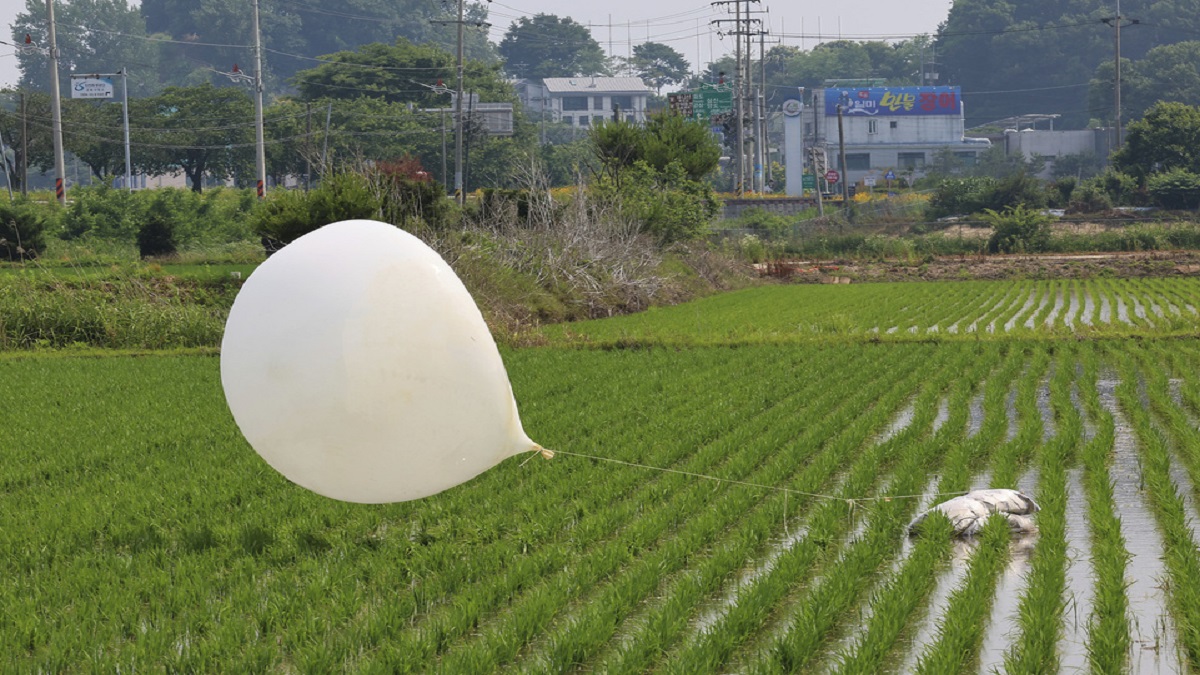Tensions have been high between the two Koreas for some time now. The matter has escalated after North Korea has been sending trash-laden balloons towards its neighbour. The trash war has been going on since late May when North Korea first sent balloons full of garbage which also included clothes donated from the South that were deliberately slashed.
“North Korea is again floating (suspected) balloons carrying trash towards the South,” reported news agency AFP quoting the Joint Chiefs of Staff. They further advised the public to report any balloons to authorities and refrain from touching them.
What did the balloons contain?
This time the balloons were full of articles printed with Hello Kitty characters, badly worn clothing, and soil containing traces of human faeces and parasites, South Korea informed on Monday. South Korea has deployed military explosives units and chemical and biological warfare teams to inspect the objects, the South’s Unification Ministry said. The ministry handles affairs related to North Korea.
Parasites and human DNA were found in the dirt in some of the plastic bags, which shows it contained fertiliser that used human faeces, the ministry unification ministry said.
The trash contained worn items of clothing with Mickey Mouse, Winnie the Pooh and Hello Kitty characters as well as socks, gloves and children’s clothes that had been heavily patched up, masks with fabric stitched by hand and two layers of shirts sewn together.
Why is North Korea sending trash balloons across the border?
North Korea has said the balloons were retaliation for a propaganda campaign by North Korean defectors and activists in the South who regularly send over balloons carrying food, medicine, money and leaflets criticising the North’s leaders.
Impact Shorts
More ShortsLast year, South Korea’s Constitutional Court struck down a 2020 law that criminalised the sending of anti-Pyongyang propaganda, calling it an undue limitation on free speech. Experts say there are now no legal grounds for the government to stop activists from sending balloons into North Korea.
North Korea, which suffers a chronic food shortage, depended on South Korea for massive shipments of chemical fertilizer until such aid was suspended in 2007 as Pyongyang accelerated weapons development.
What was South Korea’s reaction?
In response to North Korea’s trash balloons, South Korea completely suspended a 2018 military deal with the North, which was meant to reduce tensions between the neighbours.
Authorities in Seoul have condemned the North’s balloons as a “low-class” act and threatened countermeasures that it said Pyongyang would find “unendurable”.
With inputs from agencies
)